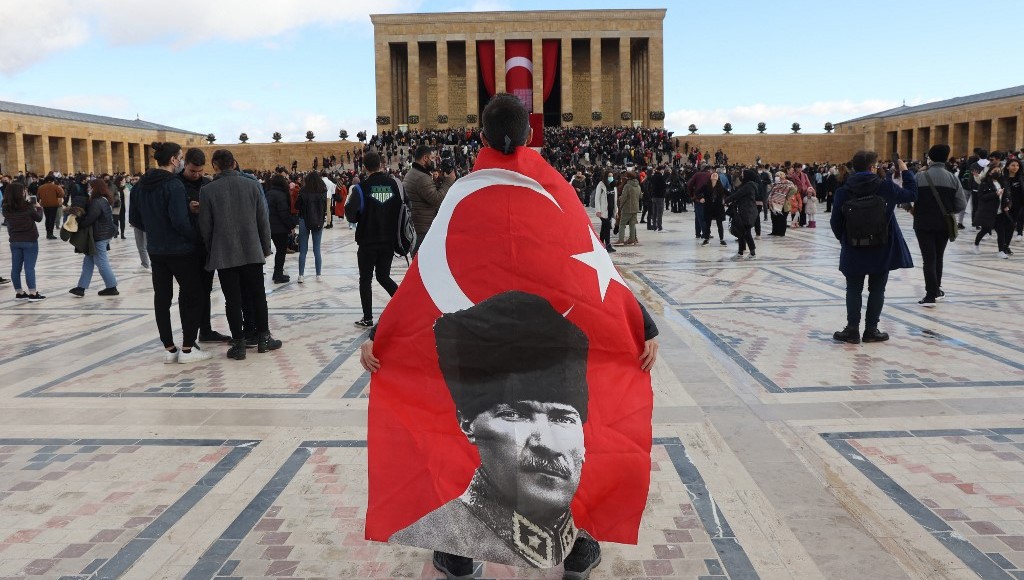Türkmen Terzi
Although 99 percent of Turkey’s population is Muslim, the country is constitutionally a secular state with no official religion. As a result, the people of Turkey have never enjoyed domestic peace due to constant tensions between different ethnic, cultural and ideological groups spanning many decades. Turkey’s “deep state,” which refers to a clandestine network consisting of bureaucratic and security officials operating outside official channels to protect Turkey’s secular Republican regime, has traditionally played a key role in increasing social tension. However, the formation of the Ata (Ancestral) Alliance—an electoral alliance created on March 11 to compete in the 2023 Turkish presidential election—suggests that the deep state has moved from secretive operations to direct political involvement.
Throughout modern Turkish history, the deep state, which can be described as a group spearheaded by military members, has targeted communists and Greek and Armenian minorities, Islamists and Kurdish politicians to maintain absolute secularist rule. This fact has been publicly admitted by former Turkish presidents Kenan Evren and Süleyman Demirel as well as former prime minister Bülent Ecevit. Nevertheless, Islamist President Recep Tayyip Erdoğan, himself a victim of the military establishment, managed to form a coalition with the deep state by sharing executive power with infamous figures, including former generals, controversial bureaucrats and mafia leaders since the early 2010s. Erdoğan aimed to cover up his corruption and purge Gülen movement members from key government institutions. He prevented Turkish police and the judiciary from carrying out the December 17-25, 2013 corruption and bribery operation that involved several ministers and his son Bilal Erdoğan. Erdoğan called the corruption case an “international plot” and accused Gülen movement members within the police and judiciary of carrying out these operations. To stay in power, Erdoğan formed an alliance with Doğu Perinçek, the leader of Turkey’s ultranationalist Motherland Party who wields significant influence in the Defense Ministry. As a result, members of the deep state have filled key state positions over the last 10 years, and they are now likely preparing for the final blow to Erdoğan, whose power is waning.
The main opposition Republican People’s Party (CHP), formed by Mustafa Kemal Atatürk, founder of the modern Turkish Republic, is a social democrat party representing a center-left, secular ideology. Following the collapse of the Ottoman Empire, Ataturk’s CHP implemented modern reforms and promoted a European lifestyle. The members of the ATA alliance, including the Victory Party, the Justice Party, the Homeland Party (Memleket) and the Turkish Alliance Party, are also secular, nationalist parties, like the main opposition CHP and Erdoğan’s ally, the Nationalist Movement Party (MHP).
However, the CHP is not a militarist party, and the MHP is a nationalist yet conservative party that does not share the anti-Ottoman, anti-Islamic view. The CHP and MHP maintain a more balanced view of ethnic minorities and Syrian refugees. These parties would like the Syrians to return to their homeland but are not provoking the public against them. On the other hand, ATA members such as Victory Party leader Ümit Özdağ often make statements regarding the need for Syrians to leave Turkey and have organized campaigns against refugees. The presidential candidate of the ATA Alliance, Dr. Sinan Oğan, shares similar extreme views with Perinçek and Özdağ. Oğan frequently expresses far-right opinions regarding Syrian refugees. In March 2017 he commented on CNN TURK that Turkey must send 500,000 Syrians to Europe. In a recent election video, Dr. Oğan vows to send Syrians back home and threatens political parties that have coalitions with pro-Kurdish parties and those promoting Pan-Turanism, an ideology aiming to unite all Turkic peoples.
Election polls indicate that President Erdoğan will face the greatest test of his political career in the upcoming election scheduled for May 14. Erdoğan has relied on the nationalist vote since the pro-Kurdish opposition Peoples’ Democratic Party (HDP) surpassed the 10 percent electoral threshold, causing Erdoğan’s Justice and Development Party (AKP) to lose its majority of seats in parliament in the June 2015 general election and the loss of the İstanbul Municipality to the CHP in 2019. Turkey’s third-largest party, the HDP, has not fielded a presidential candidate this time, allowing Kurds to vote for Erdoğan’s main rival, Kemal Kılıçdaroğlu, the leader of the main opposition CHP. Erdoğan formed an electoral alliance with the MHP in 2018 and has been sharing executive power with the ultranationalist Motherland Party since 2013.
Erdoğan’s 20-year-long regime has been difficult for Turkey’s secularists, who have lost their privileges and feel stifled under his authoritarian rule. Turkey now faces a new nationalism as militant secularists have vowed to take revenge on the AKP rulers. Although their vote potential is minimal, they enjoy strong representation in key state institutions. Furthermore, they share a similar ideology with the CHP, the party that has a chance to emerge victorious in the May 14 presidential and parliamentary elections. If Erdoğan loses the upcoming presidential election, these militant secular parties, whose leaders are known for their affiliation with the deep state and their anti-Islamic, anti-Ottoman and anti-European Union views, may launch a purge of AKP members with the aim of re-establishing their absolute secular regime.

